Education is the cornerstone of a prosperous society. Every government has the responsibility to ensure that education, in all its forms, remains accessible and supportive of the needs of diverse communities. However, the proposed introduction of a 20% VAT on independent school fees threatens to undermine the very fabric of choice, quality, and inclusivity in education. This is not just about a tax rise—it carries serious unintended consequences that will hurt not only those who can afford private schooling, but also some of the most vulnerable families in our society. Here’s why this VAT proposal must be reconsidered.
Impact on Military Families: An Unfair Burden
Military families often face unique challenges, such as frequent relocations, which make continuity of education critically important. Independent schools can provide the stability that these families need, especially when local state schools may not be able to accommodate sudden moves or specific requirements. The imposition of a 20% VAT on school fees risks pricing military families out of this educational option, adding yet another layer of stress for those who already sacrifice much in service to their country.
This is patently unfair. The government must either introduce special funding or grant exemptions to ensure that military families are not unfairly penalised by this policy.
Special Needs and Education, Health and Care (EHC) Plans: A Unique Provision Under Threat
Many independent schools offer specialized education for children with special needs, often providing tailored support that the mainstream state sector struggles to match. Children with Education, Health, and Care (EHC) plans, for instance, frequently require individualized attention and resources that independent schools are better equipped to provide.
If VAT is added to school fees, families with children who have special needs may no longer be able to afford this specialized care. This would not only harm these children’s educational and personal development, but it would also put additional pressure on state schools, which may lack the expertise and resources to provide adequate support for their specific needs. Exemptions for families with EHC plans are crucial to avoid disastrous outcomes for some of the most vulnerable children in our society.
Increased Pressure on the State School System: An Unintended Consequence
An often-overlooked consequence of this VAT proposal is the increased burden it would place on the state school system. If a significant number of families are priced out of independent schools, many of them will seek places in already overcrowded state schools. This sudden influx of students will stretch resources, increase class sizes, and reduce the quality of education for everyone.
What may initially appear to be a revenue-raising measure could end up costing the state more in the long run. The funds gained from VAT could easily be overshadowed by the increased costs of accommodating more students in the public sector. This is a false economy that will only harm the broader education system.
Potential Breach of Human Rights: A Threat to Religious and Specialist Schools
This VAT proposal also raises serious concerns about potential human rights violations. Many independent schools serve families with religious beliefs or those requiring specialised education that may not be readily available in the state system. If these schools experience declining numbers and are forced to close due to the VAT burden, the rights of parents to choose an education that aligns with their religious beliefs or caters to their child’s needs may be undermined.
Such closures could breach the protections granted by international human rights laws, which guarantee the right to choose the kind of education that parents deem fit for their children. The government must carefully consider this before implementing a policy that risks creating a two-tiered education system, where only the wealthy can afford real choice.
The Erosion of Educational Diversity
Independent schools play a vital role in fostering educational diversity. They offer unique teaching methods, curricula, and extracurricular opportunities that benefit not only their own students but the wider educational ecosystem. This diversity encourages innovation and competition, driving improvements across both the independent and state sectors.
The introduction of VAT threatens to erode this diversity by limiting access to independent schools, reducing parental choice, and weakening partnerships between the independent and state sectors. Over time, this could lead to a homogenization of education, where flexibility and innovation are lost.
A Nationwide Tax That Disadvantages Devolved Nations
The government claims that the VAT on independent school fees will help raise funds to recruit additional state sector teachers in England and Wales. This might sound like a noble cause, but there is a glaring oversight: the VAT is charged nationwide, meaning families in Scotland and Northern Ireland will also be hit with the tax burden. Yet, there are no proposals to share the tax revenue with the devolved nations, leaving them without any tangible benefit from this policy.
This creates a significant inequity. Families in Scotland and Northern Ireland will face the same financial penalties as those in England and Wales, but their education systems will see no additional support from the revenue raised. This is simply unjust. If the government proceeds with this policy, it must ensure that any revenue raised is distributed fairly across all parts of the UK, or else provide exemptions for families in the devolved nations.
Conclusion: A Short-Sighted Policy With Long-Term Damage
In conclusion, while the government’s intention to raise funds for teacher recruitment in England and Wales is understandable, the proposed VAT on independent school fees is a short-sighted policy that could have far-reaching and damaging consequences. From military families and children with special needs to the increased pressure on state schools and potential human rights violations, this policy is fraught with risks that cannot be ignored.
Moreover, the unfairness of imposing a nationwide tax while excluding Scotland and Northern Ireland from the benefits raises serious questions about the equity of this approach.
Rather than imposing a VAT that could do more harm than good, the government should seek alternative ways to raise funds without undermining the very foundations of choice, diversity, and equality in education. After all, education is an investment in our future, and it must be protected for all.

